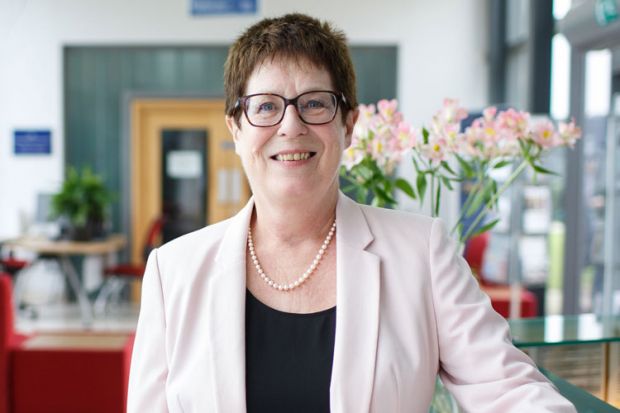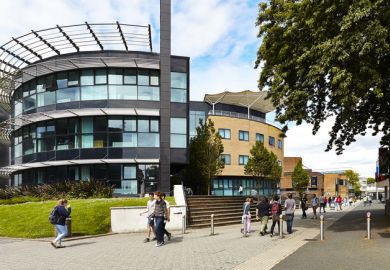Ucas has said that it is in talks to open up access to more of its data, after the admissions service was branded a “barrier” to gathering better information on disadvantaged students by the president of Universities UK.
Dame Julia Goodfellow, the vice-chancellor of the University of Kent, said that Ucas’ refusal to share records on individual applicants hampered efforts by institutions and researchers to track the progress of disadvantaged students through education – a key tool in widening participation.
Answering a question at the annual conference of the Bridge Group, Dame Julia said that universities could draw a lot of data on students from the Higher Education Statistics Agency, and could source information on schooling and employment, but that “following and tracking a person through is much more difficult”.
“We can track them through school; we can track them through HMRC [HM Revenue and Customs] once they are employed; but we have this barrier in the middle, with Ucas, on how we track the students applying and what they do there,” the UUK president said.
Dame Julia told the conference that there was a “series of letters” being exchanged with Ucas in a bid to get the admissions service to release applications data on individual students.
Widening participation experts have consistently argued that this information would allow them to better judge which outreach techniques are most effective.
The admissions service has cited the results of student surveys that found that most applicants did not want their personal data shared with anyone without their explicit consent.
However, there appears to be a shift towards greater transparency in admissions, with David Cameron ordering universities to publish data on applications, admissions and retention, broken down by gender, ethnicity and socio-economic background.
Mary Curnock Cook, Ucas’ chief executive, said that it was “difficult” to hear Dame Julia’s criticism, “because our commitment to improving access for disadvantaged students is on record”.
“We are listening to feedback from universities and the prime minister’s call for greater transparency,” Ms Curnock Cook said. “We are now in discussion with UUK about how we can extend access to Ucas data and analysis to support this agenda.”
Register to continue
Why register?
- Registration is free and only takes a moment
- Once registered, you can read 3 articles a month
- Sign up for our newsletter
Subscribe
Or subscribe for unlimited access to:
- Unlimited access to news, views, insights & reviews
- Digital editions
- Digital access to THE’s university and college rankings analysis
Already registered or a current subscriber?





